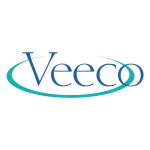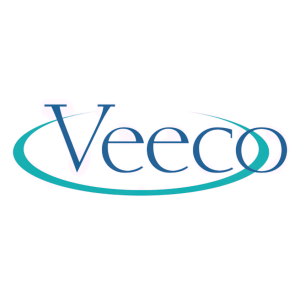Welcome to our dedicated page for Veeco Instrs Del SEC filings (Ticker: VECO), a comprehensive resource for investors and traders seeking official regulatory documents including 10-K annual reports, 10-Q quarterly earnings, 8-K material events, and insider trading forms.
The Veeco Instruments Inc. (VECO) SEC filings page on Stock Titan provides access to the company’s regulatory disclosures filed with the U.S. Securities and Exchange Commission. As a Nasdaq-listed manufacturer of semiconductor process equipment, Veeco reports its financial condition, material events and risk factors through documents such as Annual Reports on Form 10-K, Quarterly Reports on Form 10-Q and Current Reports on Form 8-K.
Recent Form 8-K filings illustrate the types of information investors can expect. Veeco files 8-Ks to announce quarterly financial results and to furnish related investor presentations, giving detail on net sales, operating income and other performance metrics. It also uses 8-Ks to disclose significant corporate events, including the Agreement and Plan of Merger with Axcelis Technologies, Inc., under which a wholly owned Axcelis subsidiary will merge with and into Veeco, with Veeco surviving as a wholly owned subsidiary of Axcelis, subject to specified closing conditions.
Another 8-K discusses the impact of a new U.S. Department of Commerce export control rule (the “Affiliates Rule”) on Veeco’s China-related business, indicating that, based on its preliminary review at that time, the company did not expect a material impact on its anticipated China-based business. These filings also include extensive forward-looking statements and risk factor discussions that reference Veeco’s Forms 10-K and 10-Q.
On Stock Titan, VECO filings are updated as they are made available on EDGAR. AI-powered summaries help explain the key points of complex filings, highlighting items such as merger terms, conditions to closing, governance changes, and comments on regulatory developments. Users can review historical and current filings to understand Veeco’s business description, financial reporting, and the regulatory context surrounding its planned combination with Axcelis.
Veeco Instruments Inc. reported an insider share sale by its SVP, Global Sales & Service. On 12/10/2025, the officer completed a sale of 33,000 shares of Veeco common stock at a price of $31.88 per share, coded as transaction type "S" on Form 4.
Following this transaction, the executive directly beneficially owns 52,154.525 shares of Veeco common stock. The filing reflects a change in this individual officer’s personal holdings and was filed by one reporting person.
Veeco Instruments Inc. reported that its CEO and director filed an insider transaction showing a sale of company stock. On 12/05/2025, the reporting person sold 25,000 shares of Veeco Instruments common stock in an open-market transaction coded as "S" for sale. The shares were sold at a price of $32 per share.
After this transaction, the insider now beneficially owns 464,543 shares of Veeco Instruments common stock, held directly. The filing covers a single reporting person and does not list any derivative securities activity.
Veeco Instruments (VECO) reported softer Q3 results and outlined a pending all‑stock merger with Axcelis. Q3 net sales were $165.9 million versus $184.8 million a year ago, with operating income of $10.6 million and net income of $10.6 million (diluted EPS $0.17 vs. $0.36). For the first nine months, sales were $499.3 million versus $535.2 million.
Semiconductor end‑market sales were $118.3 million in Q3. Cash and cash equivalents were $193.2 million, with short‑term investments of $176.1 million. Long‑term debt was $225.7 million, primarily the 2.875% 2029 convertible notes; earlier 2025 and 2027 notes were settled this year through share issuances and a small cash component. Operating cash flow for the nine months was $44.6 million.
On September 30, 2025, Veeco entered a merger agreement with Axcelis. Each Veeco share will convert into 0.3575 Axcelis shares at closing, subject to stockholder and regulatory approvals. Post‑deal ownership is expected to be about 58.4% Axcelis holders and 41.6% Veeco holders. Veeco recorded $2.6 million in merger‑related costs in Q3.
Veeco Instruments Inc. furnished its third‑quarter 2025 results, posting a press release and conference call presentation as Exhibits 99.1 and 99.2. The company also outlined next steps for a proposed merger with Axcelis Technologies, Inc., under which a wholly owned Axcelis subsidiary would merge into Veeco and Veeco would survive as a wholly owned subsidiary of Axcelis.
Axcelis plans to file a Form S‑4 that will include a joint proxy statement/prospectus for the shares to be issued in the transaction. The merger remains subject to regulatory and stockholder approvals and other closing conditions. The filing includes forward‑looking statements highlighting risks around approvals, integration, costs, and potential impacts on customers, suppliers, and employees.
Veeco Instruments Inc. filed a current report describing a new U.S. export control rule affecting certain China-related business. On September 29, 2025, the U.S. Department of Commerce’s Bureau of Industry and Security issued the so‑called Affiliates Rule, which expands the list of companies subject to U.S. list-based export restrictions. This rule will limit manufacturers’ ability to export certain products and provide specific parts and services to some China-based customers without a license.
After a preliminary review, Veeco states that it does not expect the Affiliates Rule to have a material impact on its currently anticipated China-based business. The company also clarifies that this information is being furnished rather than filed under the Exchange Act, which affects how it is treated for certain legal liability purposes.
Adrian Devasahayam, identified as SVP - Product Line Development at Veeco Instruments Inc. (VECO), reported an insider sale. The filing discloses a sale on 10/02/2025 of 3,851 shares of Veeco common stock at a price of $34 per share. After the reported transaction the filing shows 78,269.208 shares beneficially owned (direct). The Form 4 was signed by an attorney-in-fact on 10/03/2025.
William John Miller, who is listed as CEO and a Director of Veeco Instruments Inc. (VECO), reported a sale of common stock on 10/01/2025. The Form 4 shows 25,000 shares were disposed of at a reported price of $32 per share. After the sale, the filing reports 514,543 shares beneficially owned by the reporting person. The form is signed by an attorney-in-fact on behalf of the reporting person on 10/03/2025.
Form 144 filing for Veeco Instruments, Inc. (VECO) reports a proposed sale of 3,851 common shares through Fidelity Brokerage Services on NASDAQ with an aggregate market value of $130,934 and approximately 60,161,823 shares outstanding. The filer acquired the shares through restricted stock vesting and employee stock purchase plan (ESPP) transactions between 09/14/2020 and 06/30/2022; purchase/payment methods were compensation and cash. The form also discloses two recent sales by the same person on 09/15/2025 (4,046 shares, $105,196) and 09/23/2025 (4,014 shares, $120,420). The notice includes the standard representation that the seller is unaware of undisclosed material adverse information.
Form 144 notice for Veeco Instruments, Inc. (VECO) reporting a proposed sale of 25,000 common shares. The shares are to be sold through Wells Fargo Clearing Services on the Nasdaq with an aggregate market value shown as $799,493.00, against 60,161,823 shares outstanding, and an approximate sale date of 10/01/2025. The filer reports the shares were acquired on 03/18/2024 as grants from the issuer and that 25,000 shares were previously sold on 09/09/2025 by William J Miller for gross proceeds of $624,493.00. Several standard filer and issuer identification fields and the署名/remarks fields are present but not populated in the provided content.
Veeco Instruments and Axcelis Technologies agreed an Acquisition Agreement dated


